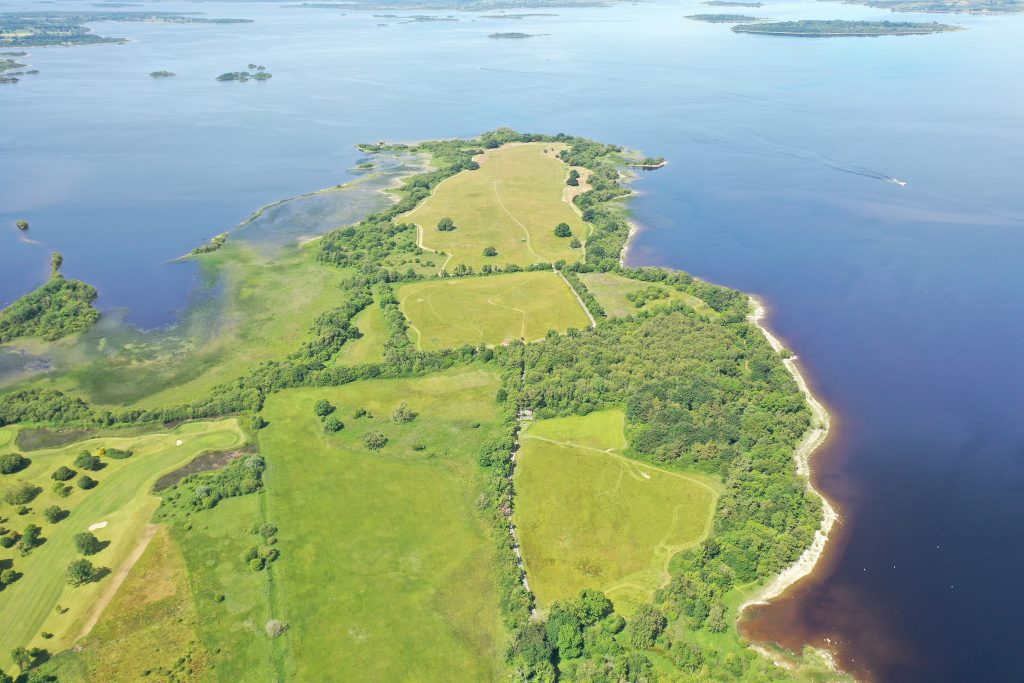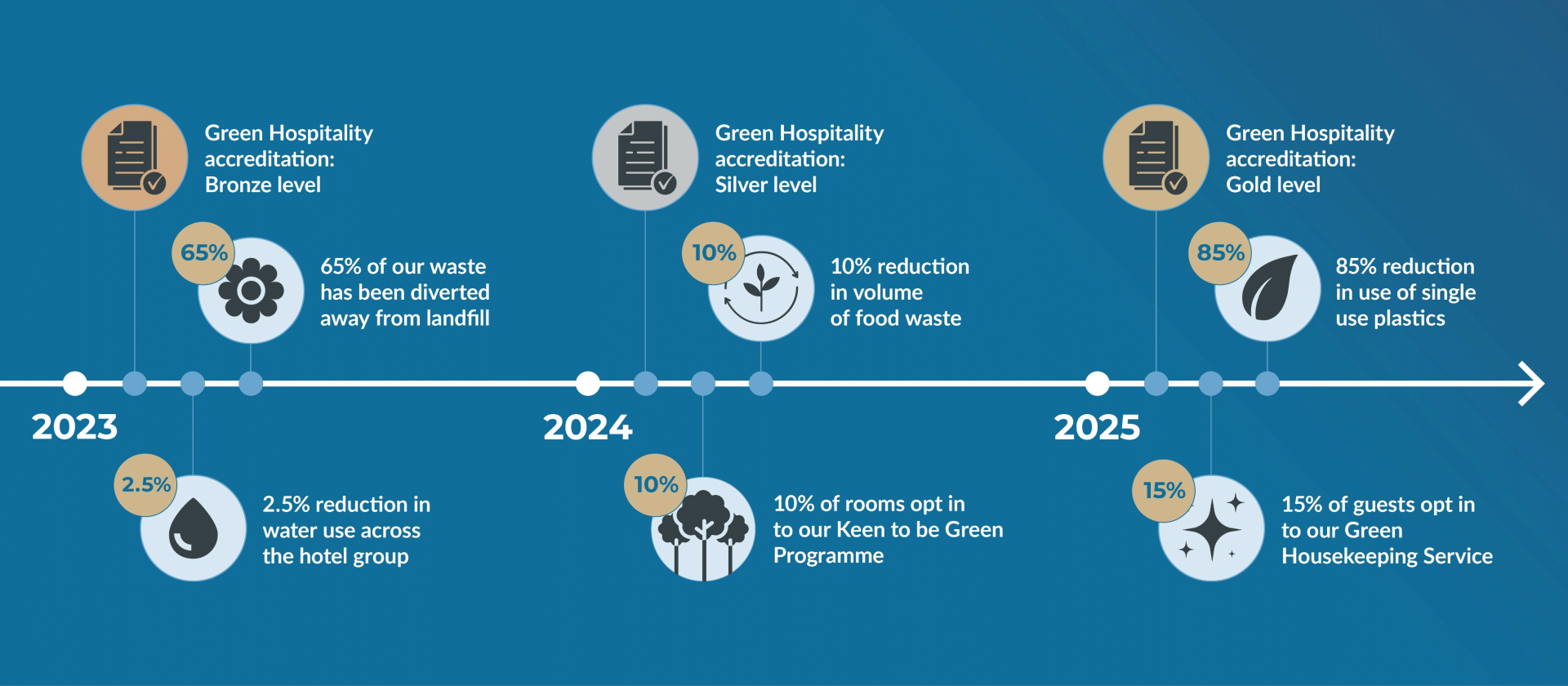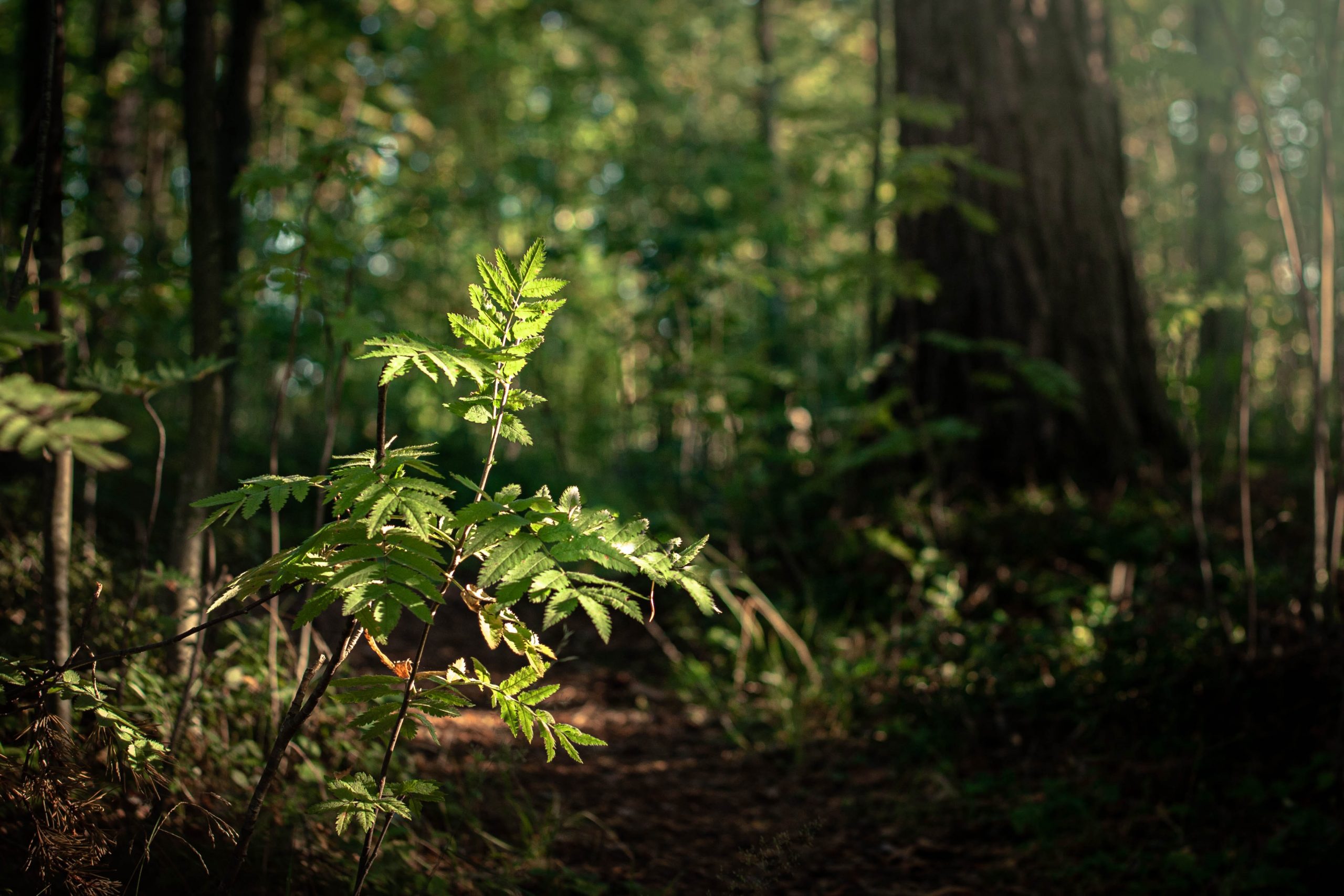Our Environment
Hodson Bay Group is implementing various initiatives under the Green Hospitality Programme, guided by independently audited criteria aligned with the United Nations 17 Sustainability Development Goals, Global Sustainable Tourism Counsel Criteria, EU Ecolabel, and Sustainability Hospitality Alliance standards. We have recently invested €3.5m across key programmes that focus on energy and water reduction, waste segregation, sustainable procurement, eliminating single-use plastics, enhancing biodiversity and guest participation in our “Keen to be Green,” programme.
€3.5m Investment in Green Initiatives
Each of our hotels participates in an annual assessment and accreditation through Green Hospitality, a certification programme that recognises businesses committed to advancing sustainability. These globally recognised awards serve as a benchmark for environmentally friendly practices and provide us with a structured approach at the hotel level to enhance our sustainability performance. This accreditation also fosters daily, hands-on engagement with our teams, playing a crucial role in advancing the Group’s overall sustainability efforts.

Our Targets

Key Initiatives
Investment in Infrastructure and Systems
We have invested €3.5 million in hotel infrastructure, systems, and performance enhancements to achieve a 25% reduction in energy consumption and eliminate 1,000 tonnes of carbon emissions across the group.
Operational Green Plan
Through the implementation of our Green Plan, we have successfully reduced energy usage across all our properties, further supporting our environmental goals.
Accreditation Targets
Our objective is for all hotels within the group to achieve Silver accreditation under the Independent Green Hospitality Programme by the end of 2024 and Gold accreditation by 2025.
Ongoing Commitment
We continually measure our performance in carbon reduction and seek new ways to minimise our environmental impact while ensuring economically sustainable growth.
Installation of Low-Flow Fixtures
Use of low-flow faucets, showerheads, and toilets in guest rooms and public areas to minimise water use without affecting guest comfort.
Maintain Plumbing Systems
Regularly check for and repair leaks to prevent unnecessary water loss.
Employee Training and Efficient Appliances
Train staff on water-saving practices and use water-efficient appliances in kitchens and laundry areas.
Monitor and Analyse Usage
Track water consumption data to identify patterns, optimise usage, and ensure continued progress.
Landfill Waste Reduction
Objective:
Decrease the volume of waste sent to landfill by 10%, achieving a 75% diversion rate across the group.
Management & measurement:
Implement comprehensive waste segregation practices, staff training, and partnerships with waste management providers to enhance recycling and composting efforts.
Food Waste Minimisation
Objective:
Reduce food waste volume by 12.5% across all properties by the end of 2025.
Management & measurement:
Introduce food waste tracking systems, optimise portion sizes, and donate surplus food when possible.
Objective: Achieve 15% guest participation in the “Keen to be Green” initiative by the end of 2025.
Initiative Overview
The “Keen to be Green” programme informs and empowers guests to make sustainable choices during their stay, including:
- Water Reduction: Encouraging mindful water usage.
- Temperature Control: Promoting energy-efficient temperature settings.
- Waste Segregation: Supporting proper waste disposal and recycling.
- Green Housekeeping Service: An opt-in service using no chemicals and reusing bed linens and towels when appropriate.
Monitoring and Evaluation
Track guest participation rates and gather feedback to enhance the programme and drive continuous improvement.
Objective: Eliminate 85% of all single-use plastics across the group by the end of 2025.
Alternatives Implementation: Replace single-use plastics with sustainable alternatives, such as:
- Reusable Containers: Introduce reusable containers for food and beverages.
- Biodegradable Products: Utilise biodegradable options for disposable items.
- Bulk Amenities: Implement bulk dispensers for toiletries in guest rooms
Guest Communication
Inform guests about the initiative through signage, digital communications, and in-room materials to foster their involvement and support.
Development of Yew Point: An eco-friendly tourist destination
- Native Landscaping: Native plants promote local biodiversity providing habitats for local wildlife and support for pollinators.
- Wildlife Corridors: The cabins will be designed using traditional screw piles and will include wildlife corridors and green spaces, allowing animals to safely navigate through the area.
- Eco-Friendly Building Design: The cabins will utilise sustainable materials and designs that minimise environmental impact.
- Water Conservation: Implementation of a water harvesting system.
- Educational workshops: Offer programmes for guests that highlight local flora and fauna, fostering appreciation and understanding of biodiversity.
- Biodiversity Accreditations: Pursue certifications that recognise efforts to protect and promote biodiversity.
- Guest Feedback: Gather feedback from guests regarding biodiversity initiatives to identify areas for improvement and increase engagement.
